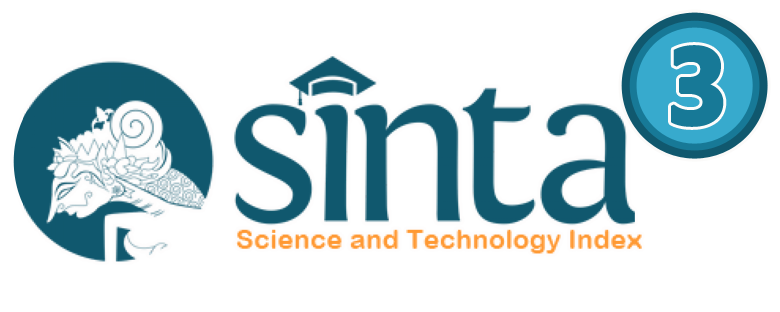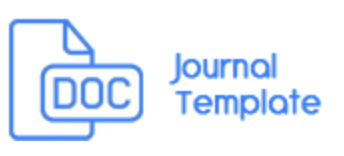The Effect of Publication Experience on Kompas.com for Writer’s Codes Ethics Analysis Ability and Reader’s Psychology
DOI:
https://doi.org/10.18326/ijip.v5i1.185Keywords:
Codes of Ethics, Journalistic, 2022 journalistic students, Psychological effects, EducationAbstract
The ease of access offered by the internet makes many people choose to turn to online media as a source of information and news. One of the notable news media portals in Indonesia is Kompas.com. In conveying online news, Kompas.com journalists must, of course, pay attention to the journalistic ethical codes that have been regulated in the Press Law Number 40 of 1999. This research uses a qualitative approach with document analysis and note-taking methods. This study aims to answer whether the publication experience on Kompas.com affects the ability to analyze the author's code of ethics, what forms of violation of the journalistic code of ethics are found in Kompas.com's reporting and whether violations of the journalistic code of ethics can affect readers psychologically. The results of this study found that publication experience on Kompas.com did not affect the ability to understand the journalistic code of ethics. There are five forms of violations of the journalistic code of ethics that researchers found in Kompas.com news, and violations of the journalistic code of ethics can affect readers psychologically.
References
R. F. N. Rohman and N. Hasfi, “Analisis Framing Pemberitaan Reynhard Sinaga Pada Media Online Tribunnews,” Interaksi Online, vol. 9, no. 1, Art. no. 1, Dec. 2020.
W. Fitriyani and A. Junaidi, “Analisis Penerapan Kode Etik Jurnalistik Pada Pemberitaan Pemindahan Ibu Kota Indonesia di Liputan6.com,” Koneksi, vol. 4, no. 2, p. 215, Oct. 2020, doi: 10.24912/kn.v4i2.8094.
R. Sovianti, “Analisis Framing: Pemberitaan Penangkapan Kasus Korupsi E-KTP Setya Novanto di Media Daring Detik.Com dan Kompas.Com,” J. Komun. Masyarakat, dan Keamanan, vol. 1, no. 1, 2019, doi: 10.31599/komaskam.v1i1.450.
A. Hardian, “Etika Jurnalistik dalam Pemberitaan Kematian (Studi Komparatif Kompas.com dan Tempo.co atas Pemberitaan Wafatnya Sapardi Djoko Damono),” J. PIKMA Publ. Ilmu Komun. Media Dan Cine., vol. 3, no. 1, 2020, doi: 10.24076/PIKMA.2020v3i1.355.
R. Y. Silalahi and E. H. Susanto, “Penerapan Kode Etik Jurnalistik Media Online Tribunnews dan Efek Pemberitaan pada Pembacanya,” Koneksi, vol. 4, no. 2, p. 293, Oct. 2020, doi: 10.24912/kn.v4i2.8144.
D. Jasmine and M. S. Abdurrahman, “Analisis Kerja Jurnalistik di Media Massa Tribunnews.com Pada Pemberitaan Kasus #JusticeForAudrey,” EProceedings Manag., vol. 7, no. 2, 2020.
M. P. Cahyani and R. Sofya, “APPLICATION OF THE JOURNALISTIC CODE OF ETHICS ON THE PROTECTION OF SEXUAL VIOLENCE NEWS SOURCE AT ‘LIPUTAN6.COM,’” J. Hurriah, vol. 3, no. 4, 2022, doi: 10.5806/jh.v3i4.110.
K. Kiki Astria, A. K. Nuzuli, and F. Handayani, “Etika Jurnalistik, Perempuan dan Pemberitaan Pelecehan Seksual di Media Online,” Ishlah J. Ilmu Ushuluddin Adab Dan Dakwah, vol. 3, no. 2, pp. 191–199, Dec. 2021, doi: 10.32939/ishlah.v3i2.104.
R. Winora, A. Besman, and D. R. Hidayat, “Penerapan Kode Etik Jurnalistik dalam Penulisan Berita Kriminal pada Media Online Infobekasi.co.id,” J. Kaji. Jurnalisme, vol. 4, no. 2, p. 165, Jan. 2021, doi: 10.24198/jkj.v4i2.29323.
N. Syah, “Pelanggaran Kode Etik Jurnalistik (Studi Kasus Foto Moeldoko Dalam Portal Berita Online Sindonews.com),” J. Pendidik. Dan Konseling JPDK, vol. 4, no. 6, p. 8, 2022, doi: 10.31004/jpdk.v4i6.9769.
Y. Yurnaldi, Jurnalistik Siap Pakai. Padang: Angkasa Raya, 1992.
S. Yunus, Jurnalistik Terapan. Bogor: Ghalia Indonesia, 2012.
A. Amer, Analytical Thinking. Cairo: Cairo University, 2005.
A. Liliweri, Komunikasi Serba Ada Serba Makna, 1st ed. Jakarta: Kencana, 2011.
W. R. Borg and M. D. Gall, Educational Research. New York: Longman, 1989.
A. Sonia, “Analisis Pemakaian Kata Sapaan Pada Cerpen ARBI Sebagai Alternatif Pembelajaran Dalam Menulis Naskah Pidato Pada Siswa Kelas VI Sekolah Dasar,” PGSD UPI Kampus Serang, Universitas Pendidikan Indonesia, Serang, 2014.
R. C. Bogdan and S. K. Biklen, Qualitative research for education: An introduction to theory and methods. Boston: Allyn and Bacon, 1982.
E. Subroto, Pengantar Metode Penelitian Linguistik, 1st ed. Surakarta: Lembaga Pengembangan Pendidikan UNS, 1996.
S. Sugiyono, Metode Penelitian Kuantitatif, Kualitatif dan R&D. Bandung: Alfabeta, 2014.
Z. Zuldafrial, Penelitian Kualitatif, 2nd ed. Surakarta: Yuma Pustaka, 2012.
N. Nilamsari, “MEMAHAMI STUDI DOKUMEN DALAM PENELITIAN KUALITATIF,” WACANA : Jurnal Ilmiah Ilmu Komunikasi, vol. 13, no. 2, 2014, doi: 10.32509/wacana.v13i2.143.
S. Faisal, Pengumpulan dan Analisis Data dalam Penelitian Kualitatif. Jakarta: PT. RajaGrafindo Persada, 2010.
M. B. Miles and A. M. Huberman, Qualitative Data Analysis: A Sourcebook of New Method. Terjemahan Tjetjep Rohendi Rohidi. Analisis Data Kualitatif: Buku Sumber tentang Metode-metode Baru. Jakarta: Penerbit Universitas Indonesia (UI -Press), 1992.
A. Ahmad and M. Muslimah, “MEMAHAMI TEKNIK PENGOLAHAN DAN ANALISIS DATA KUALITATIF,” PINCIS: Palangka Raya International and National Conference on Islamic Studies, vol. 1, no. 1, p. 14, 2021.
L. J. Moloeng, Metodologi Penelitian Kualitatif, 38th ed. Bandung: PT Remaja Rosdakarya, 2018.
J. W. Creswell and V. L. P. Clack, Designing and Conducting Mixed Methods Research, 3rd ed. California: SAGE Publications, 2017.
Downloads
Published
Issue
Section
License
Copyright (c) 2023 IJIP : Indonesian Journal of Islamic Psychology

This work is licensed under a Creative Commons Attribution-ShareAlike 4.0 International License.

 Indonesian Journal of Islamic Psycology is licensed under a
Indonesian Journal of Islamic Psycology is licensed under a 


